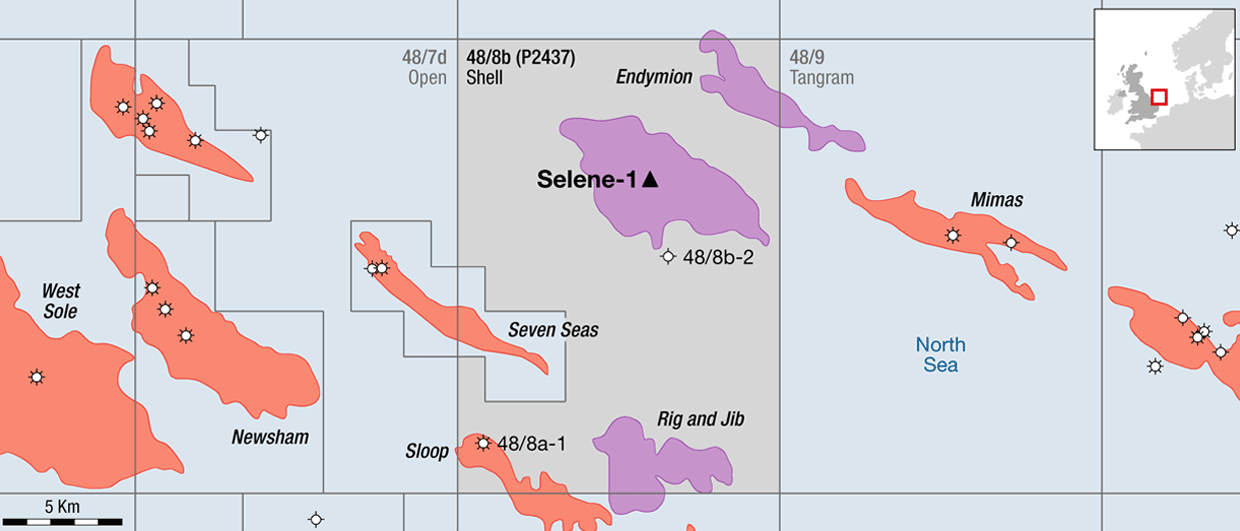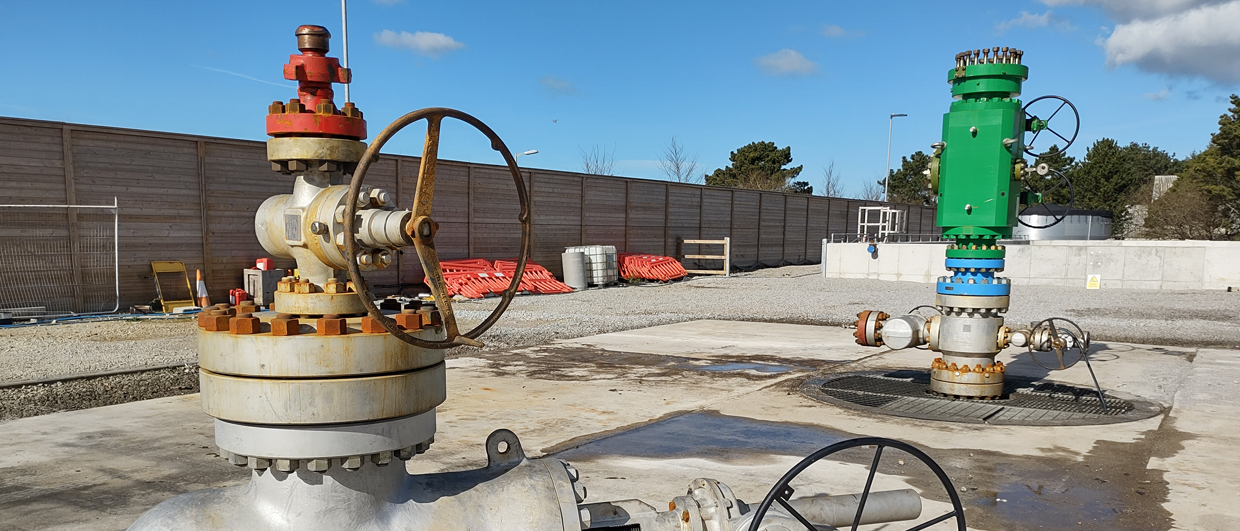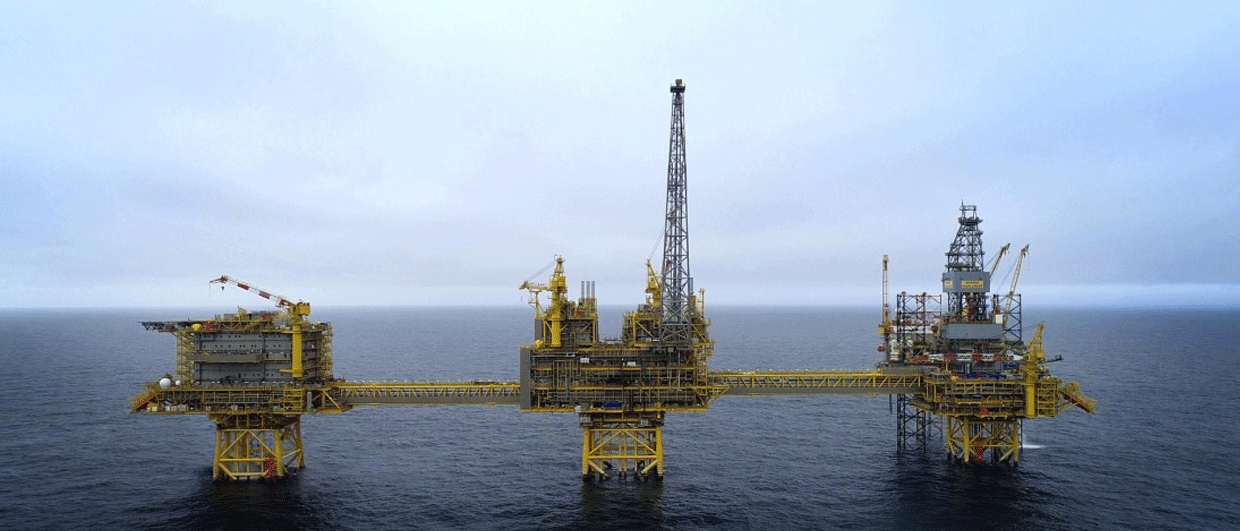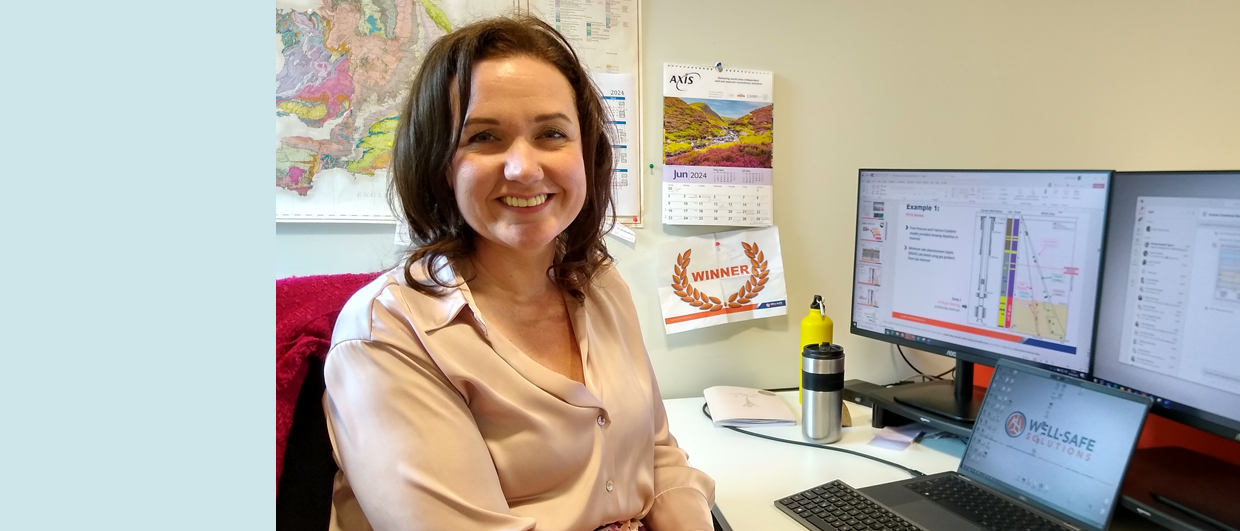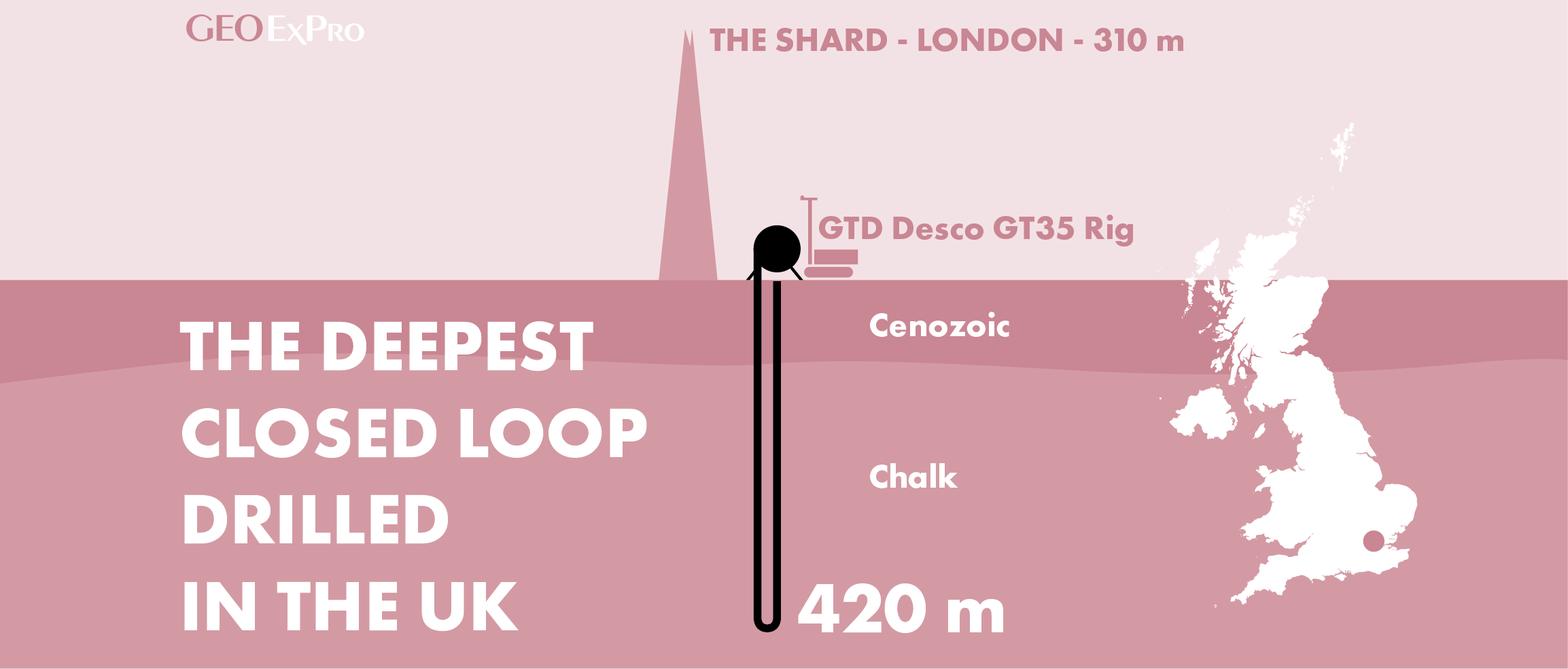A few days ago, Shell spudded the 48/8b-3 exploration well with the Valaris 123 jack-up to drill the Selene exploration well in the UK Southern North Sea gas basin. This is a bit of a landmark for recent times in the depressed UK North Sea: the first exploration well offshore UK in 2024.
As indicated by Shell’s Environmental Assessment Justification document, in the event of a commercial discovery, Selene would likely be developed standalone with a tie-in to the Barque PB platform a little bit further to the south.
The prospect was generated by Deltic Energy who have twice farmed-out, initially to Shell and then to Dana Petroleum, achieving a full carry for its 25% working interest through the drilling and potential testing of the well up to a gross cost of $49 million. Gross P50 resources are 320 bcf with a geological chance of success of 69%.
The prospect is in the familiar Rotliegend sandstone play. Vintage well 48/8b-2 found strong gas shows in tight reservoir close to the limit of what is now mapped on reprocessed 3D seismic data as the Selene structure. The key to prospectivity is the interpretation that 48/8b-2 drilled through a fault at Rotliegend level which led to local cementation of the reservoir, unrepresentative of the rest of the structure.
Deltic recently announced acceptance of a new licence in the basin where they plan to mature the overlooked 47/10 Blackadder prospect and farmout in a repeat performance of their successful strategy. Hopes are tempered though by the Pensacola story, where following a successful farmout at the exploration stage Deltic were unable to attract funding for the appraisal stage and were forced to withdraw. Now, Shell will drill the Pensacola appraisal well with the Valaris 123 rig without Deltic being involved.

